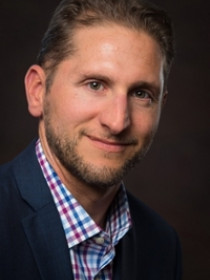
Thad Kousser
Connect with Thad
About Thad
Kousser's research on American state and national politics focuses on electoral reforms, voting rights, trust in elections, direct democracy, and how politicians use social media. Kousser helps to support research-practice partnerships with policymakers, government officials, and civic groups and conducts research in partnership with election officials across the country. Kousser has worked as a staff assistant in the California, New Mexico, and the United States Senates and comments on American politics for venues such as NPR, the New York Times, the Wall Street Journal, the Washington Post, Politico, and the Los Angeles Times.
Contributions
In the News
Publications
Finds that states with competitive party systems spend more than other states—and specifically spend more on education, health, and transportation, areas identified as investments in human capital and infrastructure. Discovers that this spending leads to longer life expectancy, lower infant mortality, better educational outcomes, and higher incomes. Concludes that party competition is not just healthy for a political system, but for the life prospects of a state’s residents.
Questions if voters were as polarized as political leaders when it came to their preferences about how to cast their ballots in November 2020 and their policy positions on how elections should be run in light of the COVID-19 outbreak. Discovers prior research has shown little party divides on voting by mail, with nearly equal percentages of voters in both parties choosing to vote this way where it is an option. Finds support for national legislation requiring states to offer no-excuse absentee ballots has emerged as an increasingly polarized issue.
Discusses that when political observers turn their attention to California’s systemic problems, they often place term limits near the top of the list—along with the initiative process, gerrymandering, and the two-thirds requirement to pass a budget in the Legislature. Discovers many critics argue that this restriction has harmed the legislative process. Finds in some ways, very little has changed and if term limit proponents hoped to curb or even banish political careerism, they have little to show for their efforts.